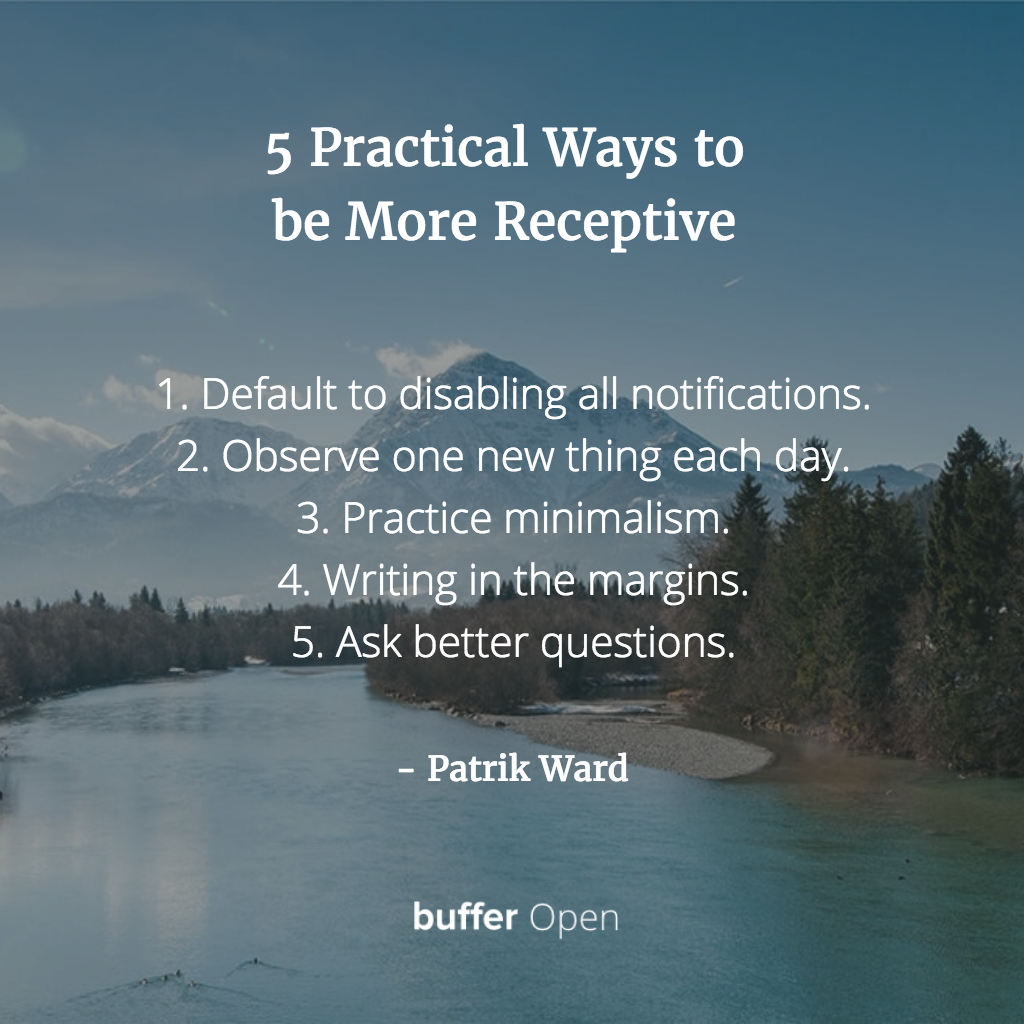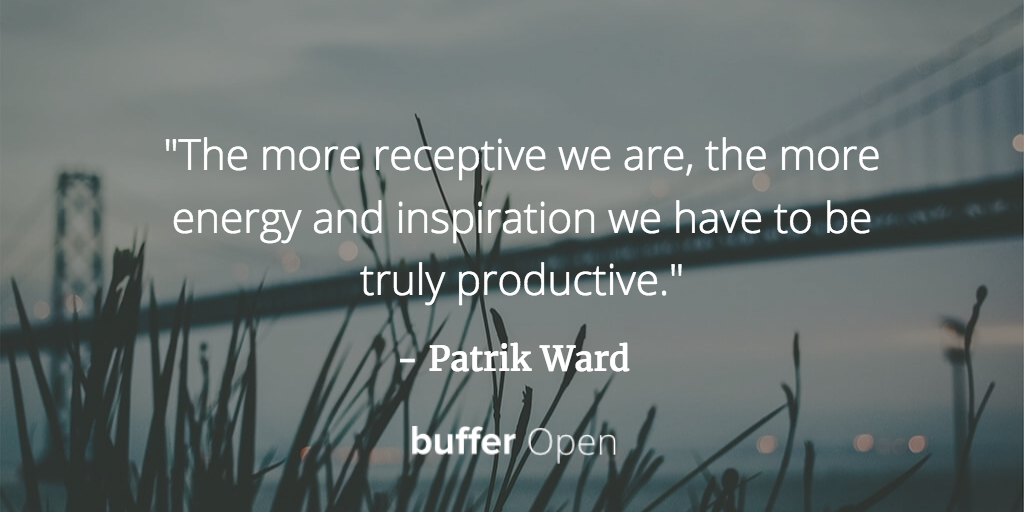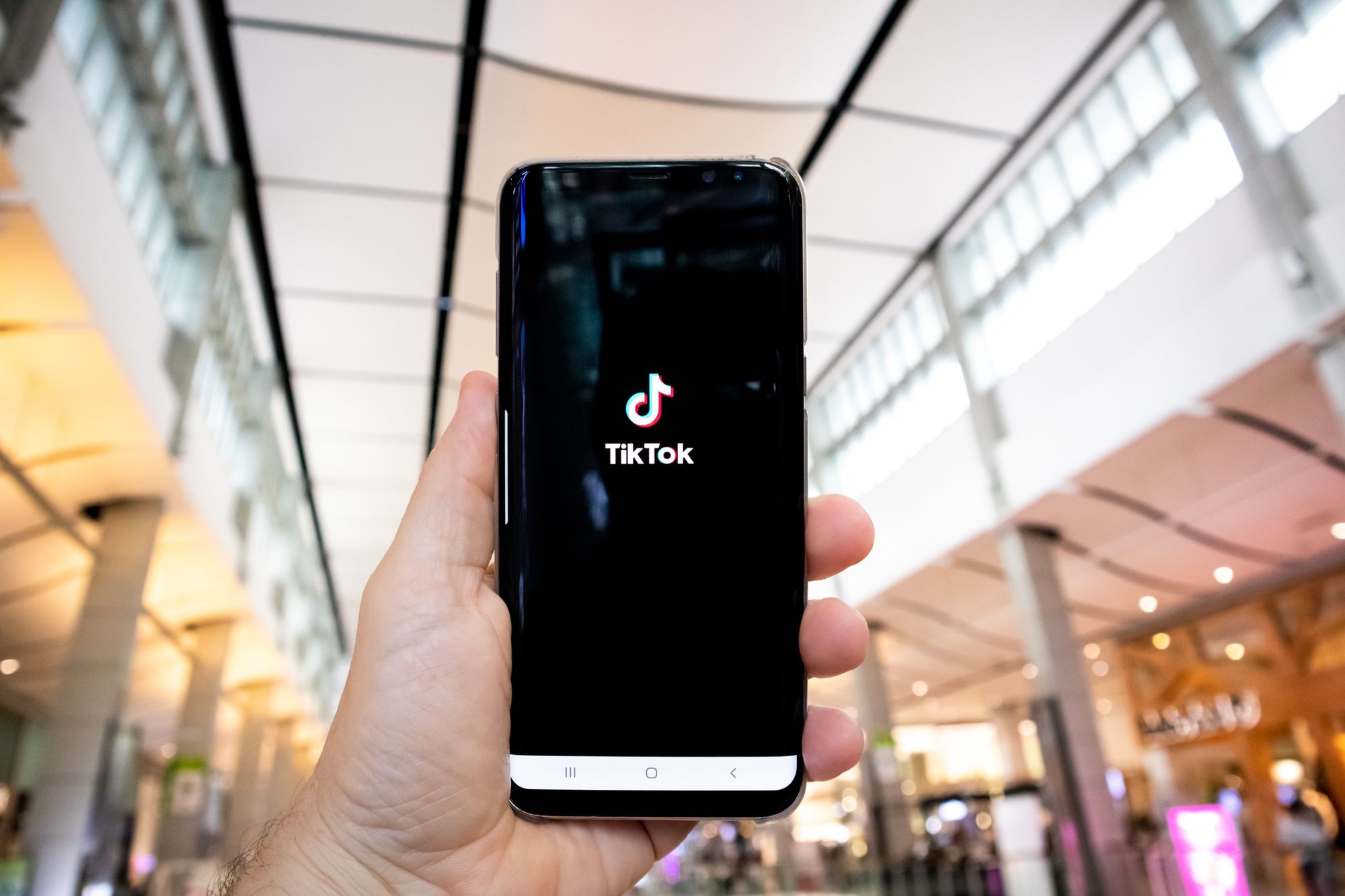We all want to be more productive and fulfilled in our day-to-day.
Even the words that we use to describe productive people and actions are filled with aspiration: ship, create, code, get things done, make things happen.
A quick search of Google for the phrase “increasing productivity” returns nearly half a million results.
There are countless books, blog posts, tips, and tools designed to help us maximize our ability to get things done.
There’s also a real danger of becoming unbalanced.
I’ve recently seen some people suggest taking this to the extreme, focusing on productivity to the exclusion of everything else in life—no reading, no fun, no conversations, no games, no inspiration.
When we focus too deeply on our productivity, it becomes easy to see ourselves as a collection of outputs. But we are more than just the sum of what we’ve accomplished. We’re also the sum of what we’ve learned, heard, read, watched, reflected on, believed in, and listened to.
As strange as it sounds, the pressure to be productive has made it easier than ever to feel unproductive.
But another word for unproductive can be: receptive.
Receptivity: the key to learning, improving and observing the world
Being receptive effectively means receiving knowledge, ideas, and inspiration from a variety of sources and inputs. It acknowledges all of the work that we do every day to process and make sense out of the signals that are around us all the time.
Over the past few years I’ve challenged myself to spend more time improving this aspect of my life. I’m definitely still early in my journey of exploring this, but I wanted to share some learnings I’ve had along the way and what’s worked for me.
This doesn’t necessarily mean that these things will be right for everyone.
What I am excited by, though, is starting more of a discussion around how we can be better readers, listeners, and observers of the world around us. How we can be generous, healthy participants as well as contributors.
5 practical ways to be more receptive

If productivity asks the question, “How can I create more effectively?” then receptivity poses the question, “How can I receive more effectively?”
Here are some practical tips I’ve implemented in my own life. This definitely doesn’t mean that I’m against “productivity” in the traditional sense, but I do think there is a lot of value in balancing what we create with how we receive the things that are all around us.
1. Default to disabling all notifications.
Being receptive doesn’t mean opening yourself up to all the noise of the world.
Sometimes it means saying no to distractions so that you can focus on the things that matter. Buffer’s co-founder, Joel, shared how zero notifications is one of his most effective life hacks.
At the moment I only receive notifications for phone calls and text messages (and I’m debating removing text notifications altogether, too). I’ve been amazed by how present I’ve been able to be without my phone or computer regularly demanding my attention.
2. Observe one new thing each day.
We have a limited amount of receptivity in any given moment.
To test this, try listening to 20 different songs playing at once—it sounds like chaos, and it’s impossible to appreciate any of them.
Life is a lot being surrounded by infinite harmonies, with each one competing for our attention. What I’ve started to do is pick one thing each day—a lamp, a song, a specific plant in the garden—and take the time to deeply and truly observe it.
I’m still very much a beginner at this but I’ve already felt it begin to develop my ability to focus, which is a crucial muscle for being more receptive. This pays off also in the form of single-tasking rather than multitasking.
3. Practice minimalism.
Minimalism is the practice of cutting out the extraneous and being intentional with your space, possessions and time. We’ve experimented with a variety of minimalism techniques to simplify life and work. How can we apply these principles to be more receptive in our own lives?
One quick way to become more receptive is to reduce the number of things that compete for my attention.
This is as true for many of the things we interact with as it is for notifications.
- If I only owned one book at a time, I imagine I’d read it more deeply than if I had a stack of books waiting for me.
- If I limited myself to one browser tab at a time, I’d pay far more attention to what I’m reading than if I had 15 tabs open.
4. Write in the margins.
My grandfather used to tell me, “You haven’t truly read a book until you’ve argued with it in the margins.”
Over the years he built up a collection of hundreds of books, each filled with his thoughts, reactions, and questions.
Since I started doing this as well, not only do I find myself thinking about the books I read more, but I find it helps clarify my own thoughts and feelings.
(We’ve shared before how you can read and remember more.)
5. Ask better questions.
While there may not be any bad questions, I do believe that there are better questions.
The more I find myself thinking about improving the way I ask questions, the more I realize that it’s a powerful way of being more receptive.
Open questions like, “Why do you think that might be true?” invite us to listen to someone else’s perspective more fully.
Over to you!
As you read through this, you might notice that some of this advice sounds like it could apply to productivity, too.
This is why I think the two ideas are inextricably linked: The more receptive we are, the more energy and inspiration we have to be truly productive. The more productive we are, the more important it is for us to become better at receiving and processing signals.

Do any of these ideas strike a chord for you? Got any suggestions for me in my quest to be more receptive? I’d love to hear from you in the comments!
Try Buffer for free
140,000+ small businesses like yours use Buffer to build their brand on social media every month
Get started nowRelated Articles

TikTok's parent company must divest the app or face a ban in the U.S. Here's everything we know, plus how to plan ahead.

How the Buffer Customer Advocacy Team set up their book club, plus their key takeaways from their first read: Unreasonable Hospitality by Will Guidara.

In this article, the Buffer Content team shares exactly how and where we use AI in our work.
